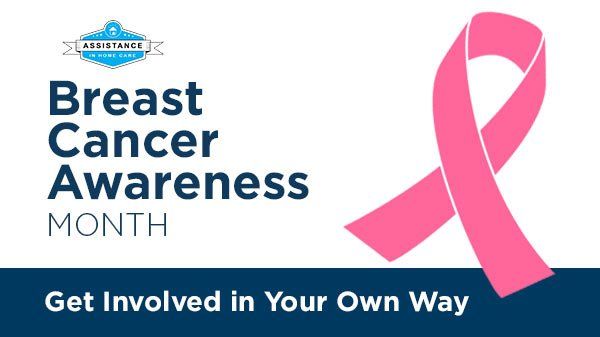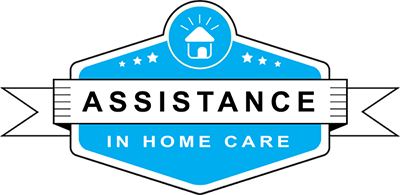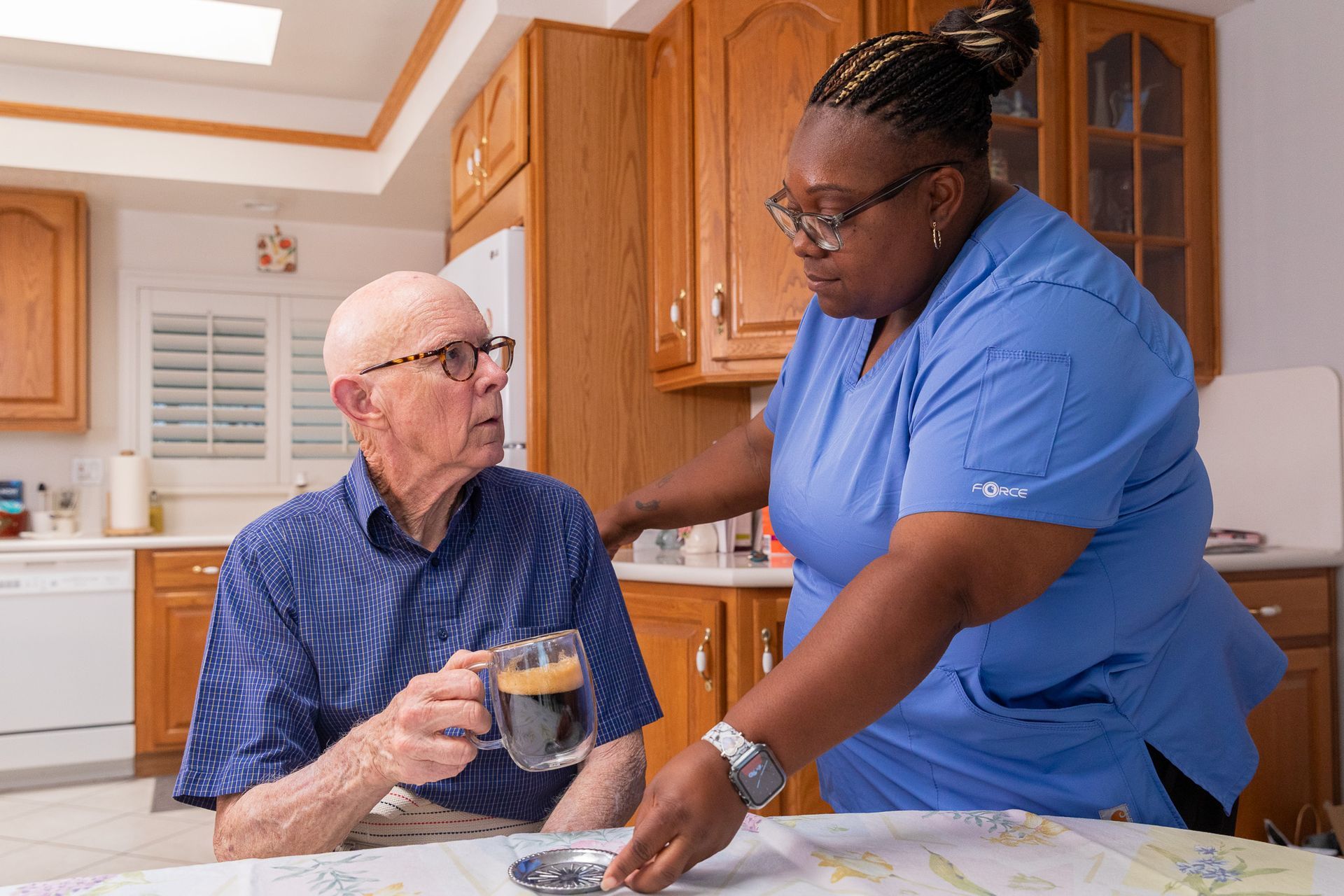Breast Cancer Awareness Month: Get Involved in Your Own Way

October serves as a time for people all around the world to understand the effects of breast cancer and how one can show their support during Breast Cancer Awareness Month. It is estimated that 1 of 8 women in the United States will develop breast cancer during her lifetime. Breast cancer also affects a small percentage of men in the U.S as well. This year alone, an estimated 2,650 men will be diagnosed with breast cancer in the U.S. 1 Assistance in Home Care joins the many other voices in spreading awareness and sharing resources so that you and your loved ones can maintain a healthy lifestyle.
Understanding Breast Cancer
Cancer cells form when the process of cell growth goes wrong and new cells are created when the body doesn’t need them. For instance, old or damaged cells do not die as they should. As a result, the buildup of cells often forms a mass of tissue, also known as a tumor.
Breast cancer begins in the cells of the breast as a group of foundation cells that invade the surrounding tissues or spread to other parts of the body.1 These groups of cells are characterized as malignant tumors. Malignant tumors are cancerous, and sometimes aggressive, cells.
Symptoms and Risks of Breast Cancer
According to the Centers for Disease Control and Prevention (CDC), symptoms of breast cancer may include:2
- Changes in the size or shape of the breast
- Pain in any of the breast area
- Nipple discharge other than breast milk (including blood)
- A new lump in the breast or underarm
If any of these symptoms worry you or a loved one, the CDC recommends you contact your doctor right away.2 Additionally, understanding your personal risk factors can help you or a loved one keep the risk of breast cancer as low as possible. Although there are risk factors that are out of your control (i.e., age and gender) here are a few established risk factors:3
- Women over 45 years of age
- Family history
- Genetics
- Drinking alcohol
- Smoking
- Lack of Exercise
Get Involved, Show Your Support
October is a time where we can all share one voice in support of breast cancer awareness and those affected by breast cancer. Not knowing the symptoms and risks of breast cancer can be unnerving. Assistance in Home Care hopes to push others to be proactive with their health by sharing educational and supportive resources. Along with the listed references, Breast Cancer Now offers a variety of charity and fundraiser options available to you as you support Breast Cancer Awareness Month in your own way. Moreover, the National Breast Cancer Foundation has insightful resources if you have further questions regarding the myths, treatments, and stages of breast cancer.
Assistance in Home Care stands by you and your loved ones through life’s hardships and challenges. Caring for a loved one with a chronic condition can prove to be difficult and overwhelming as you adjust to new lifestyles. Our caregivers are given the necessary training to ensure that the transition from one lifestyle to another is as painless as possible.
Resources
- National Breast Cancer Foundation, Inc: https://www.nationalbreast-cancer.org/breast-cancer-facts
- Centers for Disease Control and Prevention: https://www.cdc.gov/cancer/dcpc/re-sources/features/breastcancerawareness/index.htm
- Breast Cancer.Org: https://www.breastcancer.org/https://medlineplus.gov/healthyaging.html


